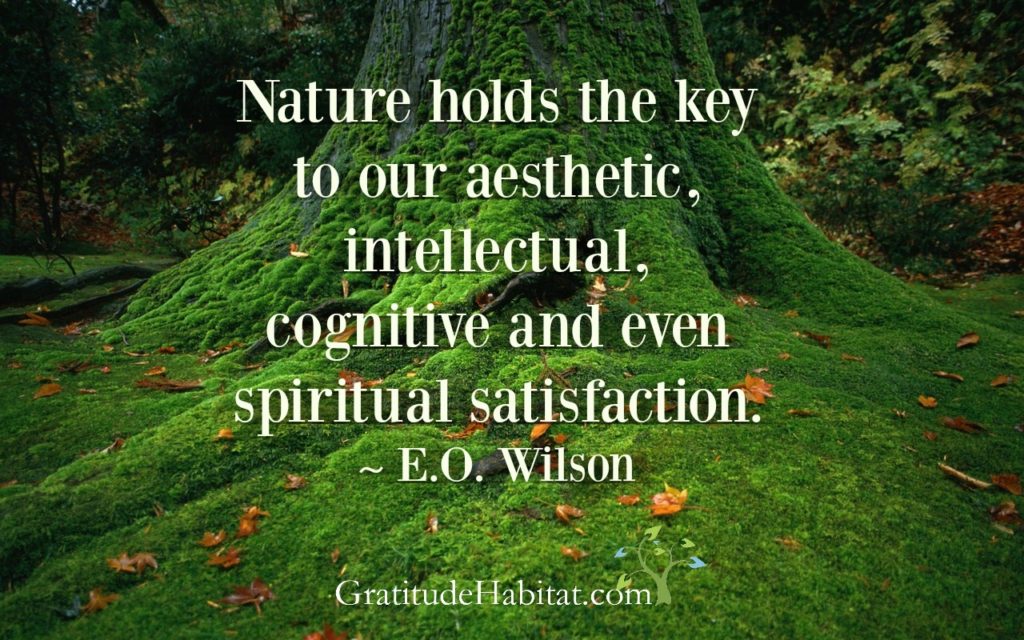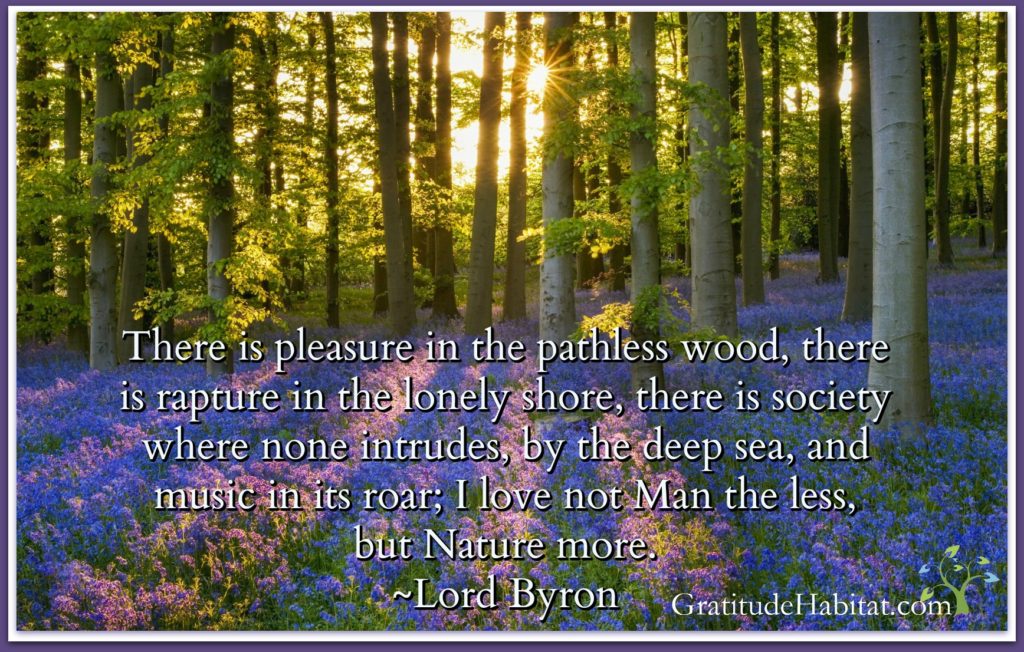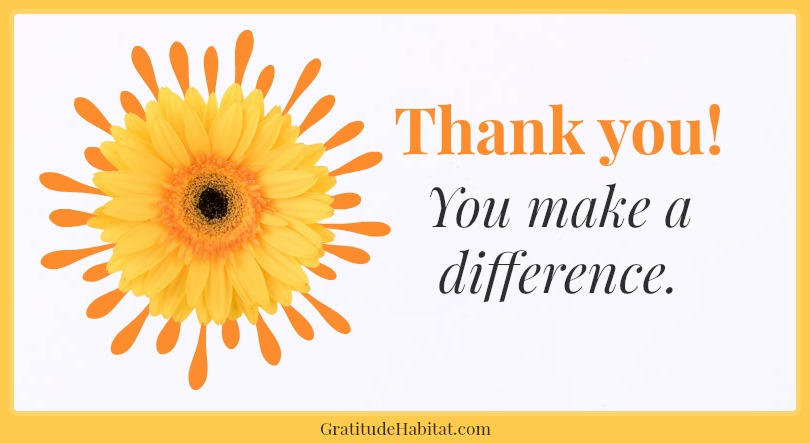Living In Gratitude: 5 Ways Nature Promotes Personal Wellbeing
Nature holds the key to our aesthetic, intellectual, cognitive and even spiritual satisfaction. ~E. O. Wilson
Scientific studies show that being in nature has an overwhelming influence on our brains and our behavior. Being in nature helps reduce stress, anxiety, and worry while increasing our ability to focus, be creative as well as boosts our ability to connect with others.
“People have been discussing their profound experiences in nature for the last several hundred years—from Thoreau to John Muir to many other writers,” says University of Utah researcher David Strayer. “Now we are seeing changes in the brain and changes in the body that suggest we are physically and mentally more healthy when we are interacting with nature.”

While Strayer and other scientists firmly believe experiencing the flora and fauna of our world benefits our wellbeing, people of all ages tend to spend a substantial amount of time indoors and online. The research on how nature improves our brains calls for spending more time outdoors to increase our health, happiness and creativity.
Below are 5 ways we benefit from being in nature.
-
Decreased stress levels
Studies have shown that people tend to unwind and relax more when they are outside in a natural environment VS an urban one. This holds true whether they are in a forest or city greenspace. These people showed lower heart rates, better moods and less anxiety than those who were exposed to a purely urban environment. Scientists believe that humans are wired to be more relaxed and soothed in natural spaces and our bodies and minds behave positively in these natural environments.
-
Boosts happiness and reduces brooding
A study conducted by Stanford University researcher, Gregory Bratman, showed that the emotional state and cognitive abilities of participants who took a walk in a natural setting were dramatically better than those who walked in an urban area. They reported feeling more positive and less apprehensive, ruminated less and performed better on short-term memory tasks than did the urban walkers.
-
Revives focus and sparks creativity
Today’s technological world bombards us daily with distractions, resulting in mental fatigue and burnout. A 2012 study showed that participants who traversed through a natural greenspace experienced decreased frustration and higher meditation levels while in the green area, and higher engagement levels afterwards, enabling attention restoration and encouraging a more open, meditative mindset.
“If you’ve been using your brain to multitask—as most of us do most of the day—and then you set that aside and go on a walk, without all of the gadgets, you’ve let the prefrontal cortex recover,” says Strayer. “And that’s when we see these bursts in creativity, problem-solving, and feelings of well-being.”

-
Enhanced generosity and kindness
A series of experiments at UC Berkeley studied the potential impact of nature on the inclination to be generous, trusting, and helpful toward others, while considering what factors might influence that relationship. Researchers showed participants nature scenes, some of which were more pleasing than others. Those exposed to the more picturesque nature scenes acted more generously and more trusting than those who saw less attractive scenes. Based on this and other similar studies, researchers have concluded that experiencing the beauty of nature increases positive emotions—perhaps by inspiring awe, a feeling akin to wonder, with the sense of being part of something bigger than oneself—which then leads to pro-social behaviors.
-
Feel more alive
Being outdoors gives us energy, makes us happier, helps us to relieve the everyday stresses of our overscheduled lives, opens the door to creativity, and helps us to be kind to others.
No one knows if there is an ideal amount of nature exposure, though Strayer says that experienced backpackers suggest a minimum of three days to truly unplug. Nor is there definitive data on how nature compares to other forms of stress relief or attention restoration, such as sleep or meditation.
Research does suggest there’s something special about being in nature that keeps us psychologically healthy. Results like these should encourage us as a society to consider more carefully how we preserve our wilderness spaces and our urban parks.






